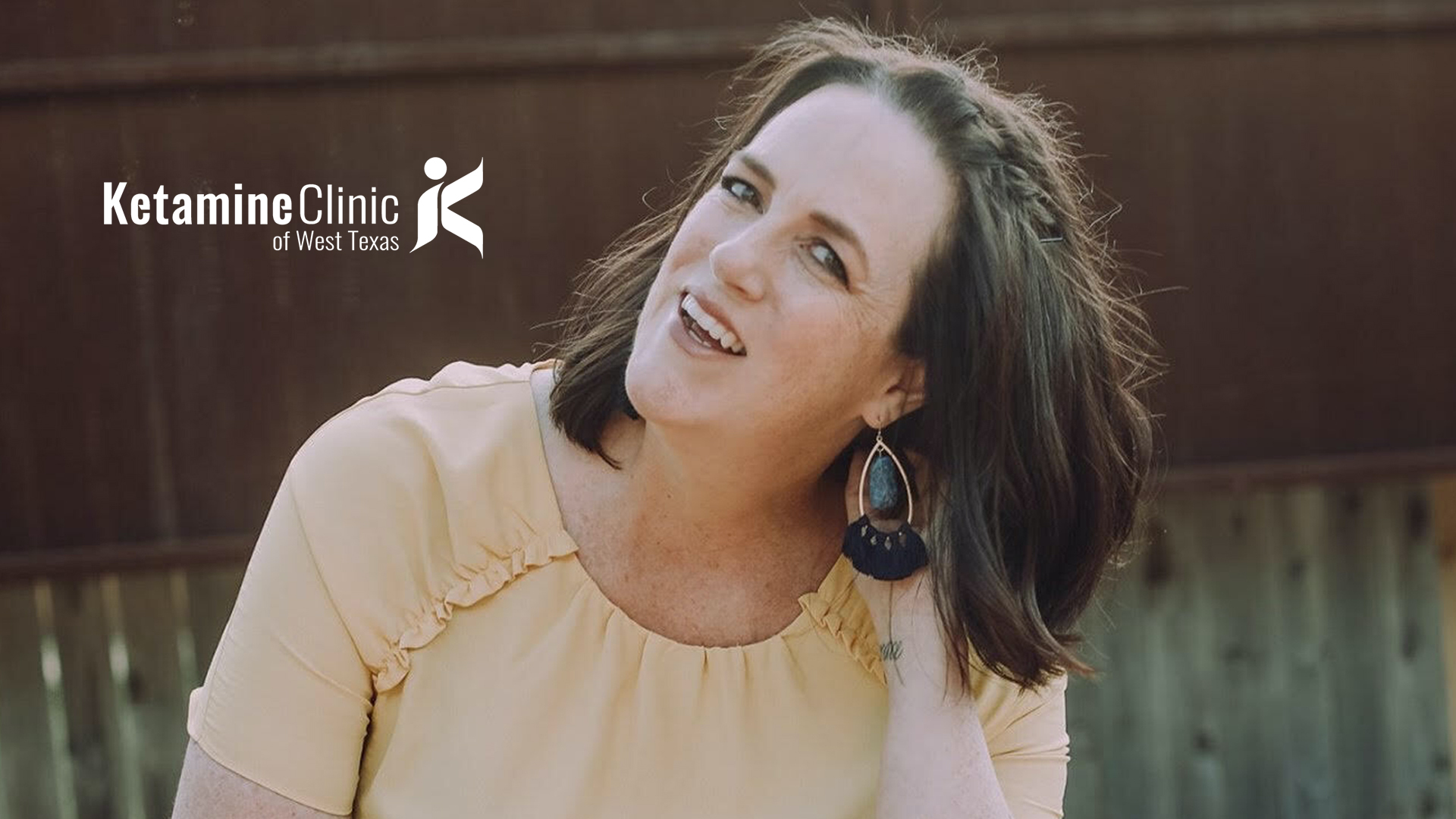In the late 1800s, the world was getting bigger. The advent of the railway meant that previously disconnected towns or hard-to-reach peoples were now situated upon metal pathways linking them to the rest of the world.
In the state of Texas, halfway through the laborious trek from Fort Worth to El Paso, Midway Station was soon built for this very purpose. An entire region of the state became connected to resources it could only have dreamt of decades earlier.
Many years later in modern-day Midway Station – now known as Midland, Texas – the Ketamine Clinic of West Texas carries on the legacy of their town’s namesake.
Rather than connecting people with giant metal pathways, owner Tammy Vaught and the providers at the Ketamine Clinic of West Texas seek to heal people through reconnection of important mental pathways.
Vaught is no stranger to healthcare, having earned her stripes in arduous and high-stress environments.
“So, I have been a nurse since 1998 and I’ve been a nurse anesthesiologist since 2009, so about 12 years. Most of my background was spent in a level 1 trauma center in Detroit, so I did a lot of work with mental health patients before I ever went into this realm of work.”
The decision to shift to providing ketamine treatment – at the time, an innovative but experimental option – was purely personal at first, Vaught explains.
“Why I branched out to owning the clinic stemmed from doing research for a friend suffering from chronic pain as well as treatment-resistant depression.
I was looking for options for him, for something out of the box. Ketamine came up in my research so I started researching, talking to clinicians. But when I went to look for a clinic there wasn’t one within 5 hours of us. That was going to mean he would have to spend money to travel, so I decided to open a clinic.
Honestly, my goal was to help my friend, but then it just developed into the most rewarding professional decision of my life.
My friend died by suicide within seven months of us opening the clinic, and that was the catalyst that pushed me to keep going in this direction. Three and a half years and hundreds of patients later, here we are.”
Since then, the Ketamine Clinic of West Texas has indeed gone on to serve hundreds of patients, but some experiences stand out in Vaught’s memory.
“Patients suffering from PTSD are some of my favorite people to treat because they often get great results. My very first patient battled PTSD and I’ve treated several veterans who’ve had great results.
Often for me, the most rewarding thing is when a patient’s family comes to me midway through treatment and is like, ‘I’m starting to get my wife back. I see the old “Sally” in her eyes, in the way she’s reacting to things.’
Or a mother who brings in her daughter for a booster and tells me, ‘She’s engaging in life again, she’s working again.’
Also, when a patient is on a laundry list of prescription medicines and through ketamine therapy they’re able to diminish their list of medication.”
Some people are cautious, or even downright hesitant, to try ketamine infusion therapy. Skepticism is in fact healthy, according to Vaught.
“It is responsible to always be cautious and do research. However, ketamine is known to be a very safe drug. It’s gotten a bad rap because of years of being abused, but when we utilize it under a medical professional’s care, someone who is well-studied and continues to do research to optimize their practice, I think that it’s worth giving a try.
While ketamine’s history is somewhat arduous, it doesn’t mean it’s any less valid to consider when trying to save someone’s life.
It’s changed my life. Personally, I’ve treated four of my family members. I would treat myself, my child, my husband. I would treat anyone, if they met the criteria, without hesitancy.”
Vaught’s time with ketamine infusion treatment has indeed changed her life, she explains.
“One of the things I’ve learned is that mental health disorders don’t discriminate. We’re currently treating patients that can’t afford groceries, but we’re also treating some of the wealthiest individuals in our community. There is very much an economic discrepancy, but mental health doesn’t discriminate.
I believe that it’s opened my eyes to the fact that more of us are dealing with mental health challenges than we realize.
Having patients trust me when they feel like they don’t have any more choices – that’s a lot of pressure, for someone to trust you like that, to tell you that you’re their last stop.
It’s very humbling, stressful, and rewarding to be able to walk along that journey with someone. When someone tells you that they may not be alive without the treatment you offered… it’s been very life-changing.
When I worked in the ER, I was dealing with patients on their worst day. In this line of work, I’m now dealing with people in their worst season of life. It’s not just a bad day. If they’ve come to me, they’ve been in a bad season of life for a long, long time.”
If ketamine is such a powerful source of hope for those suffering – and the research confirms it is – what is preventing it from receiving more widespread acceptance from the medical community?
“The fact that even though it’s a drug that has been around since the ‘60s, and was actively studied for mental health since the early 2000s, most insurance companies still consider it experimental.
How many years do we have to treat people with this before it’s not experimental? I know the results. I would guess millions of lives have been changed with this medication.
The fact that I am an advanced practitioner is a barrier. The fact that I didn’t have a degree in psychiatry is a barrier, but that’s why I’m back in school now.”
An essential part of the process, Vaught explained to me, was each providers’ willingness to continue to educate themselves on the ever-expanding scientific consensus.
“I’m currently due to graduate in August with my post-master’s certificate as a psychiatric mental health nurse practitioner.”
As it inevitably does in most of my conversations with ketamine providers, the conversation soon shifts towards our shared grievance over the current stigma ketamine faces. Vaught sees that the biggest challenge this industry faces is the stigma.
“The stigma of the drug, because it has been abused. But you can also abuse Benadryl. Opioids are abused like crazy. I think that we, as an industry, are trying to do everything that we can. We need more task forces that are going to talk to political entities, medical entities. More clinics increasing publicity.
I try on my own personal outlets to talk about mental health in general as much as I can.”
Our conversation ended on a note of hope. Where does Vaught want to see the state of ketamine in ten years’ time?
“I want to see it covered by insurance. I want to see it used as a frontline treatment instead of a ‘once everything else has failed’ treatment.
We’re seeing complete remission with those who are trying ketamine first. If you treat a patient within a few months of the traumatic event, you can completely reverse or prevent the PTSD.
I want to see an exploration of more utilization. I want it to become a standard of care. I want all veterans to be able to get it like, yesterday.”
Time will tell how ketamine infusions progress as a treatment, but one thing is for sure: providers like the Ketamine Clinic of West Texas – ingrained with a sense of compassion and medical experience – are going to be a necessary ingredient of the journey no matter what.

